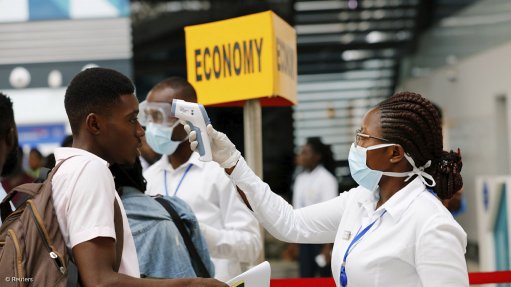
Photo by: Reuters
The National Institute for Communicable Diseases (NICD) on Tuesday assured South Africans that all ports of entry from China have been strengthened to detect any persons carrying the coronavirus.
Speaking to Polity, Professor Cheryl Cohen from the Centre for Respiratory Diseases and Meningitis at the NICD said since the virus was declared a global emergency the institute has worked closely with all relevant stakeholders, private and public health institutions and the Department of Health to make sure a comprehensive plan is in place to take action against the deadly virus.
However, she said the institute was aware that some people could enter the country via illegal ports of entry.
“We are also reaching out to the public by using questionnaires and making sure that everyone is aware of the virus and also making sure that doctors and nurses know the signs and symptoms to worry about and the kinds of travel history there is to worry about, and should there be a specific case they will know what to do in terms of managing the case, as well as isolating the case to prevent the spread, and also submitting samples to our laboratories where we can make the diagnosis,” she said.
Cohen said the symptoms of the virus presents themselves like the common flu, such as a fever, shortness of breath and body pains and she warned that it is not easy to tell if a person has the coronavirus without being tested.
“It is important for South Africans to know that the coronavirus is not circulating and the only people who should worry are people who have travelled to China. If someone has been in China in the last fourteen days, they should worry if they have the signs and symptoms,” she stressed.
In terms of travel bans, she said people who are planning to travel should consider that their travels might be disrupted. She advised South Africans to postpone their trips if possible until the situation has settled down especially when you know that the area you are travelling into has cases of the virus.
She said while there is ongoing research to try to understand how the virus is transmitted, what is known is that most likely the virus is transmitted via droplets when we sneeze or when we talk.
She urged citizens to protect themselves by exercising normal hygienic practises such as washing of hands, coughing and sneezing into elbows, disposing of tissues accordingly and also keeping a distance from someone who may be sick.
The NICD is undertaking active surveillance and processing samples from people who have travelled to China recently. Cohen said after testing a few samples they have not detected any positive case in the country so far.